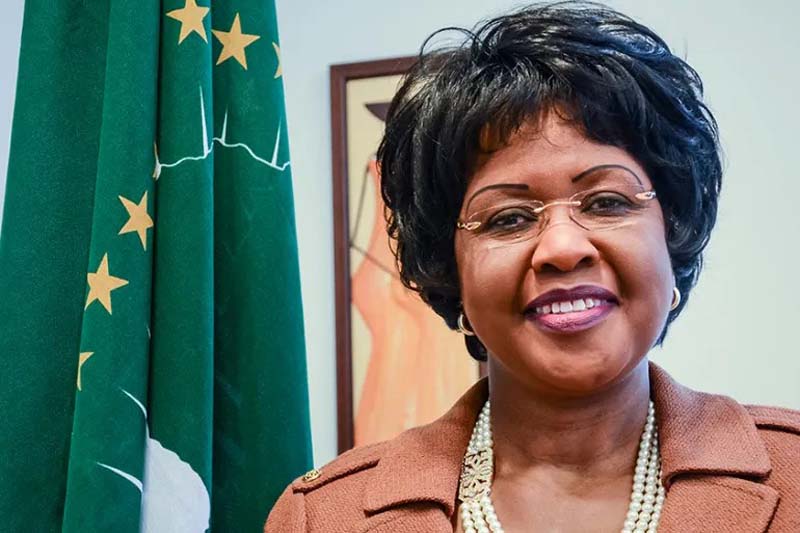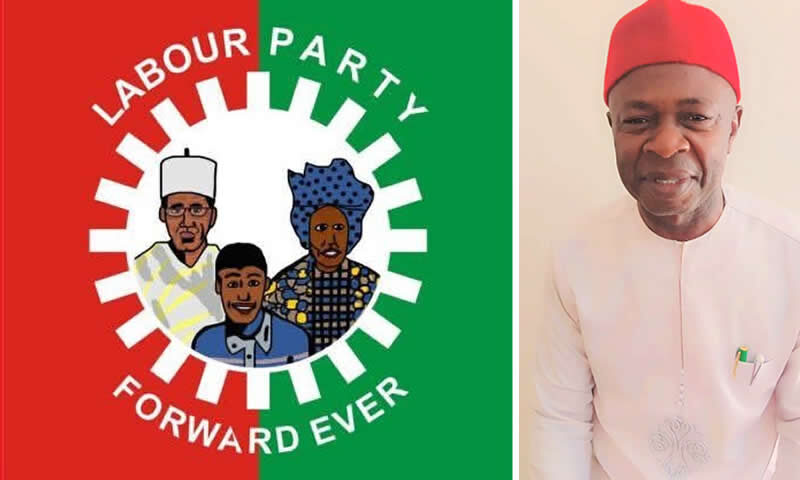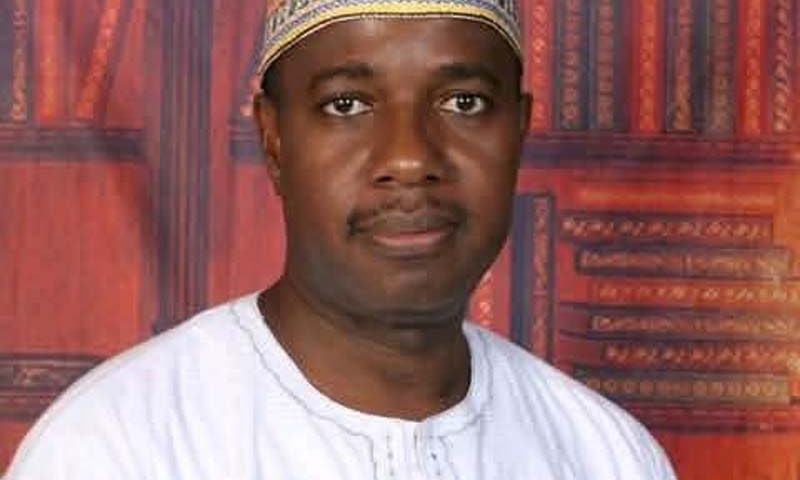“Africa must wake up and take her destiny in her own hands by speedily articulating a leap of technological, cultural, spiritual and mental disruptions under the existing framework of the Africa Continental Free Trade Agreement (AfCFTA), Agenda 2063”
In 2024 France’s military and exploitative economic strangleholds are being expelled from the African continent through actions in Niger, Mali, Burkina Faso where military coups have been responsible for regime changes and the birth of the Alliance of Sahel States (French: Alliance des Etats du Sahel) AES Confederation whilst collectively withdrawing from ECOWAS and leaning towards the Russian sphere of influence and military cooperation with Russian Mercenaries the “Wagner Group”. This has elicited celebratory support from the three country’s citizens and across Africa, with many hailing the death of exploitative capitalism, neoliberalism and neocolonialism.
The old puppet democratic governments in the three countries had been accused of being ravaged by corruption, abuse of power amongst other infractions which some experts label “corruptocracy”. A wind of Pan Africanist fervor seems to be blowing across the land once known as Alkebulan. The expunging of the French Military from their bases established for decades in the above countries has been followed with French corporations also been thrown out or been increasingly taxed or asked to reshape their operations along the lines of new laws or decrees which favour the military regime’s Pan Africanist pivotal restructuring. More recently Senegal and Cote D’Ivoire have joined the fray with the wave of expulsions increasing, with the exception being Nigeria where a few weeks ago President Bola Ahmed Tinubu was hosted in the French Palace and has been accused by Niger Coup leader General Abdourahamane Tchiani of hobnobbing ingloriously with President Emmanuel Macron in the form of bringing French Military presence albeit covertly into Northern Nigeria as well as their industrial/business operations in the mineral resources sector. Djibouti and Gabon are the only locations where French Military bases still persist with less than 2000 soldiers stationed there.
The loss of France’s Econometric, Media and Military-Industrial Complex (EMMIC) in Africa has a wider implication for the collective West’s capitalist machinery and also America’s hegemony and unipolarity doctrine including for the value of the greenback or “dollar” globally and across the resources rich black continent. Military-Industrial Complex (MIC) was famously introduced to the American public and the world by President Dwight Eisenhower in his 1961 farewell speech. In the old cold war era, because a new one is upon us with the Russia Vs Ukraine conflict being the active theatre of extermination, the Middle East is another and hopefully Africa will refuse to be one of such locations for nuclear armed Superpower states to achieve a destructive showdown. In the context of EMMIC cluster as I have elaborated above, Pres. Eisenhower was confounded that the nexus between military officers, corporate business leaders and powerful politicians – the three groups constituting the “power elite” according to C. Wright Mills, the social theorist, had implications for the disastrous rise of misplaced power, which in my assessment had ravaged other continents and particularly Africa’s holistic economy and sociopolitical climate for centuries and this even enabled the transatlantic slave trade. For the ancient influences of brainwash and psychological operations to be potent and lasting the Church used religious manipulation during the slave trade and all these were part of the EMMIC playbook, this is besides using brute force. But Africa must wake up and take her destiny in her own hands by speedily articulating a leap of technological, cultural, spiritual and mental disruptions under the existing framework of the Africa Continental Free Trade Agreement (AfCFTA), Agenda 2063 and other intricate protocols for the unionism of her citizen’s extreme quest for strategically visionary leadership that will spur accelerated firstworldom in the next 30 plus years. Japan and China have done it and so can Africa!
In the light of the above, West Africa’s Republic of Ghana on the 8th of January swore in President Mahama as her next statecraft leader and on the 20th of January President Donald Trump the non-establishment Republican candidate returns to the WhiteHouse. The world promises to be awash with four new years of geopolitical intrigued which have to augur well for Africa no matter the odds. In this light the Africa Business Leadership and Investment Summit (ABLIS) 2025 holding in Rwanda which was founded by the expert and vision driven consultant Amb. Shirley Nkechinyere Hills at Crustos working closely with Amb. Oliver Chikodzore (of Africa Rising TV) and ABLIS board members seeks to delineate and critically interrogate the implications of Africa’s corporate, informal and economic sub and superstructures, including the policymaking processes in the 54 countries whilst the continent sheds her colonial underpinnings, manages her ongoing conflicts and all these under the ABLIS Summit’s theme tagged “Paradigm Shift Africa”.
Following from the past and key to the future is that Africa’s human capital, vast farm-to-fork value chain, mineral wealth and natural resources have for centuries been hugely the centre of gravity of the commodities, global technology and energy sectors to the greater profiteering of the West and global North, now inclusive of Asia (Dubai Gold cartels) and China. With Africa’s pivotal role in the global economy, one is left to wonder why poverty and deindustrialization thrives? But by understanding the concept of strategic economic hitman jobs perpetrated covertly by the CIA, Bretton Woods institutions as IMF, WorldBank and their consultants, intricate corruption webs and the ruse of economic aid offered and accepted by African leaders as usually happed on by Prof. Jeffrey Sachs, these all explain to the discerning mind why the profound contradictions persist in far lesser favour of Africa’s growth trajectory.
In reality Africa’s resources have become a bane and not a blessing. Across the lithium and cobalt mines of the Democratic Republic of Congo, gold and diamond mines of Sierra Leone and Liberia to the oil fields of Nigeria and Angola, the African continent supplies critical human capital and resources that power the operations of the world’s most profitable companies, such as BigTech’s Apple, Google, Facebook, Microsoft, and energy corporations such as ExxonMobil, Shell, BP, and TotalEnergies.
Africa’s resources are essential for everything from smartphone batteries, laptops to electric vehicles and more. All these essential technological gadgets and gizmos puts Africa at the center of both primary cum traditional and emerging industries. These are the key subject matters to be discussed in panelist sessions at the ABLIS Summit as the experts and speakers seek to deconstruct at the foundational level the reversal of the current pathways which support capital flight, poor economic ratings, institutionalized poverty, resources driven insecurity and insurgencies, weaponized economic doctrinal trends, election interferences, psyOps and foreign inspired regime changes as well as braindrain, drastic effects of climate change, debt burdens, taxation of corporations/double taxation of SMEs/MSMEs, the rise of BRICS and dedollarization, lack of technology transfer and inactive IP laws, Energy poverty, Food sovereignty, education/R&D inclusive of Commercialisation of inventions and the judiciary in economic spaces. All these affect Africa’s about 1 billion workforce adversely.
There is also the immense factor of Africa’s diaspora positively impacting the continent given it remits over $70Billion back home annually. Africa has an unexplored need to critically attract her diaspora professionals home to add remarkable value but the enabling environment remains a challenge. Besides rare earth minerals, there is a dire need for policies to enable the digital economy and revolution, especially with the upsurge of Artificial Intelligence (AI) which has been predicted to become the first trillion dollar industry.
As Africa’s resources rich local communities fuel the global economy they too often bear the devastating costs of a trilogy of challenges which are: degradation of the ecosystem/environment, which leads to damage of traditional lands and livelihoods, there is also labor exploitation involved in dangerous extractive operations in mines, and finally displacement from ancestral territories to make way for new mining or drilling projects, industrial takeovers and carbon colonialism. There is certainly a renewed scramble for Africa with her forests being sold off by various country’s Presidencies in deals closed in 2023 to a little known UAE based company called Blue Carbon owned by Sheikh Ahmed Dalmook al-Maktoum, a move that will erode subsistence livelihoods of the citizens in those countries.
Without a doubt the disparaging scenario between corporate profits and CSR/Community impact has sparked a global wave of protests targeting the econometric, media military-industrial complex (EMMIC) and the corporations that benefit from resource extractions in Africa. These demonstrations reflect a growing demand for corporate accountability and equitable practices in resource-rich African nations by Western and Asian players alike as well as their collaborators. As the world transitions toward renewable energy and advanced technologies, the need for ethical sourcing of African resources has to become a sinequanon, standardized model, moral imperative and crucial factor in sustainable global development.
ABLIS Summit 2025 in Kigali, Rwanda, powered by Crustos Consult run by Amb. Shirley Nkechinyere Hills is of the notion that the private sector besides Government should be the engine room of Africa’s growth, exposing the continent’s economy to all the driving forces associated with sustainable partnerships, corporate governance and collaboration for sustained year on year decades long growth whilst creating jobs and fostering a massive culture of entrepreneurship, innovation and disruption.
All this will be achieved through the unique platform of ABLIS and it’s post event structures, especially with having powerful speakers like Tony Elumelu, Chairman of UBA and Heir Holdings, Akinwunmi Adesina of the Africa Development Bank (AfDB), Dr. Okonjo-Iweala – DG of the World Trade Organisation (WTO), yours truly at the Ministry of Trade of SOAD, Amb. Arikana Quao, Caitlin Nash, Amb. Oliver Chikodzore, His Excellency Arthur Mutambara – Deputy Prime Minister of Zimbabwe amongst other top professionals.
The Africa Energy Fund (AEF) founder His Royal Majesty Engr. Eberechukwu Oji of Arochukwu Kingdom, Abia State who was a former Director at Shell with 30 years experience in the Oil & Gas sector and who is the brain behind the over $2.4Billion acquisition of Shell’s Onshore assets in Nigeria is also bill to attend and make his presence and experiences felt. It still remains to be seen if Africa Rating Agency (ARA) and Ndeipi Inc. USA whilst working to attend will make an impressive impact at the summit. The ABLIS list of partners and sponsors is a trigger happy lineup of heavyweights.
Conclusively Africa in the three decades approaching will experience the fastest increase in the working age population of all regions, with a projected net increase of 740 million people by 2050. Nigeria will have a population of about 400 million by 2100 as the third most populated country in the world then. Up to 12 million youth will enter the labor market across the region every year in the coming decades, yet only about 3 million new formal wage jobs are currently created each year. The Africa Union (AU) must wakeup to the deficits and critical hurdles on the African continent. The economies in the region will recover at a faster pace in the years to come if it can manage the conflicts in their political systems, unite around a developmental cause, invest in education and end the conflicts triggered on the continent. Africa’s policy should be geared toward sharing the growth benefits more equally across the population by wealth distribution that invests immersively in human capital advancement, fostering economic diversification, infrastructure development and jobs-friendly economic growth. ABLIS intends to advance Africa through global business economic sustainability, and private sector transformation, Pan-African integration and
partnerships for shared prosperity.
His Excellency Hon. Ebube Ebisike George is Minister Of Trade of The State Of The African Diaspora (SOAD).






